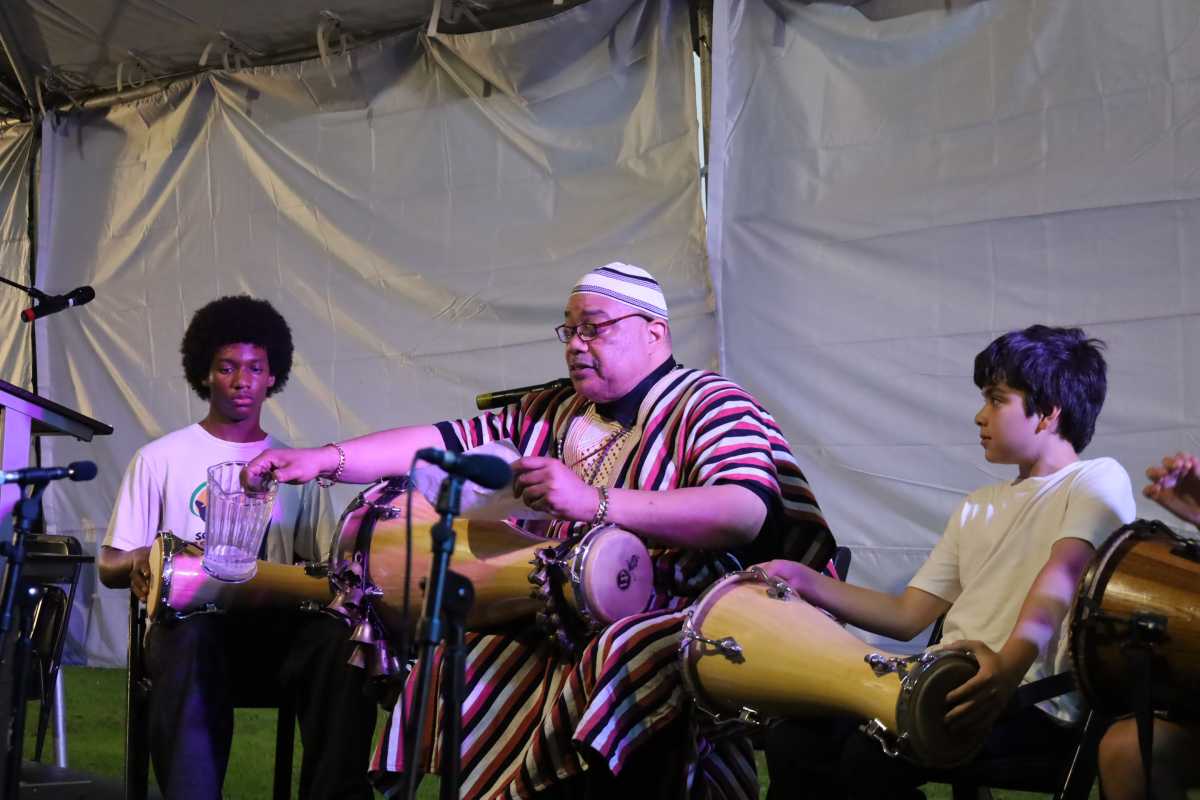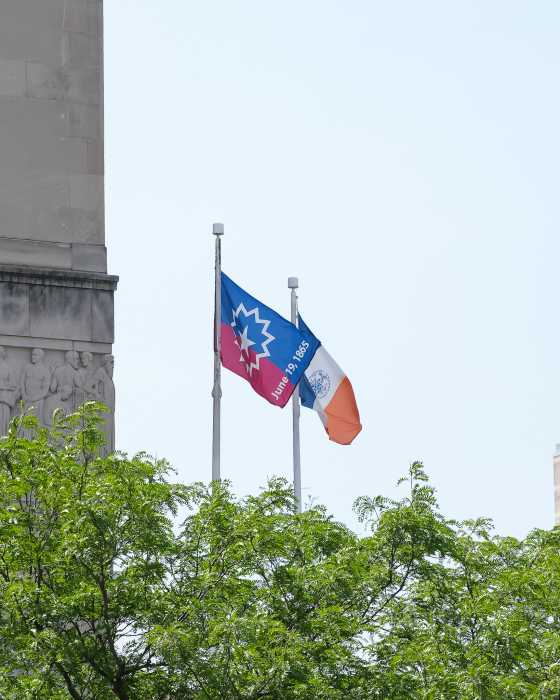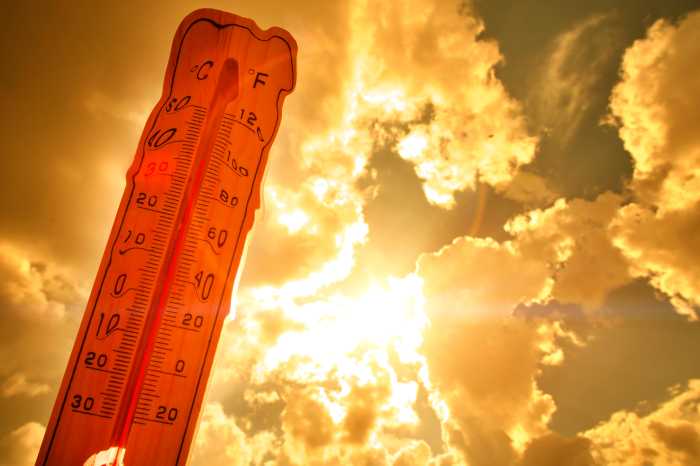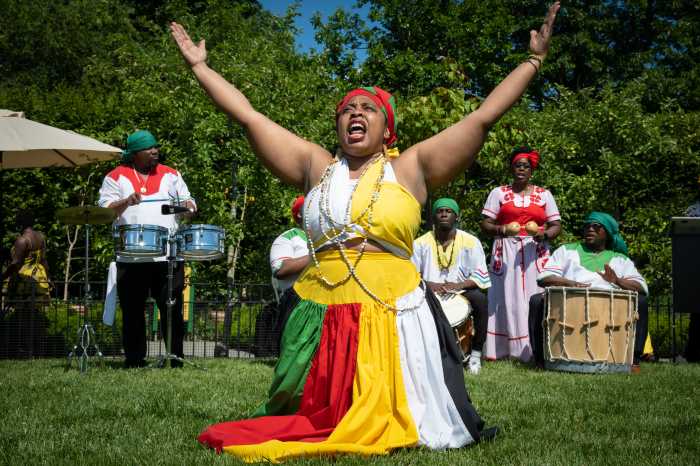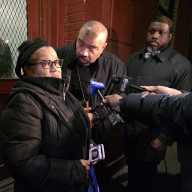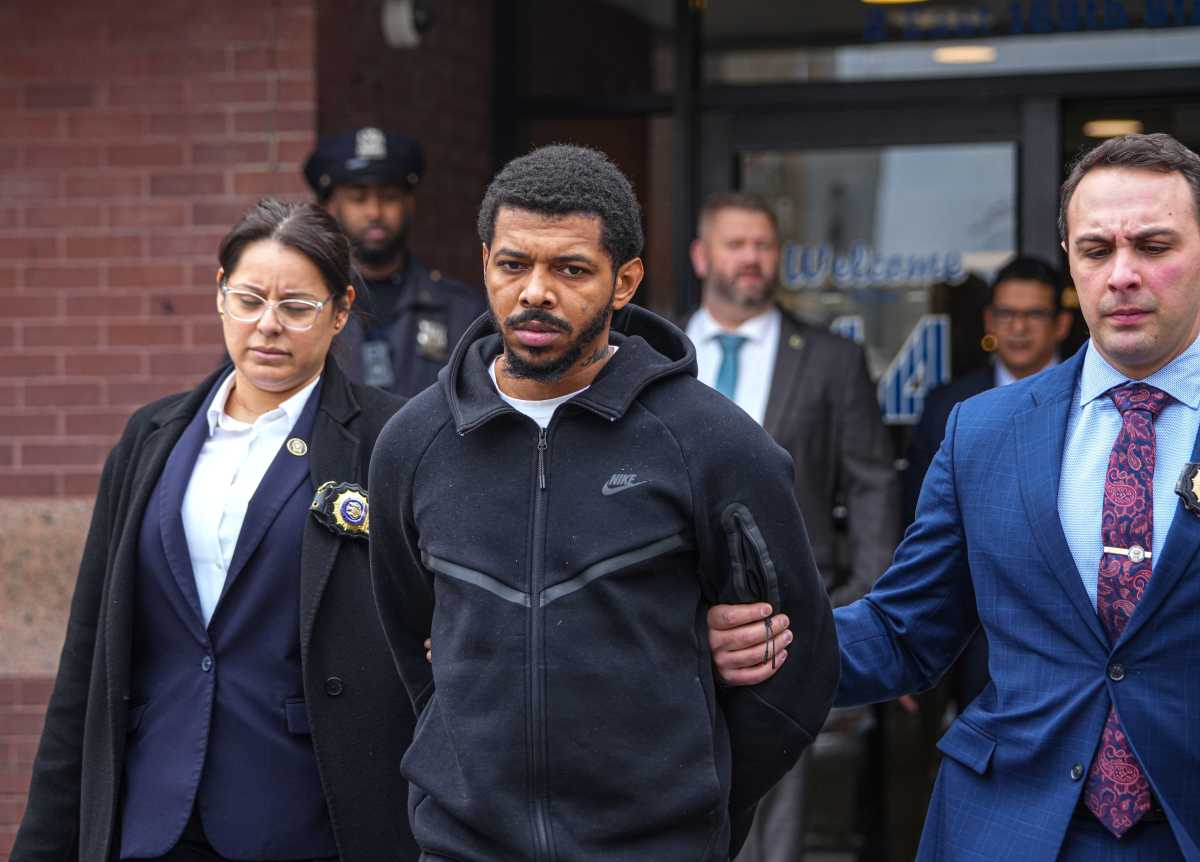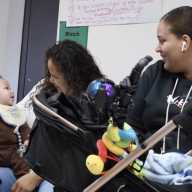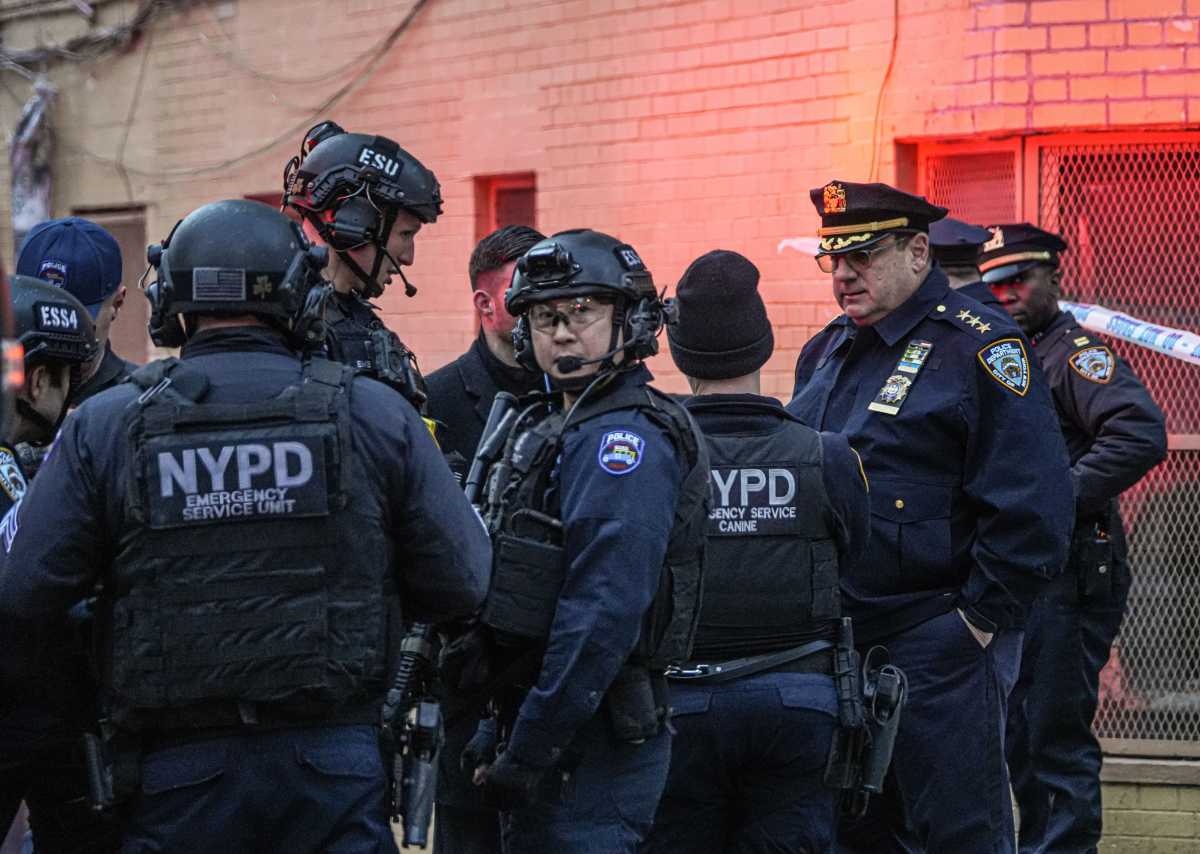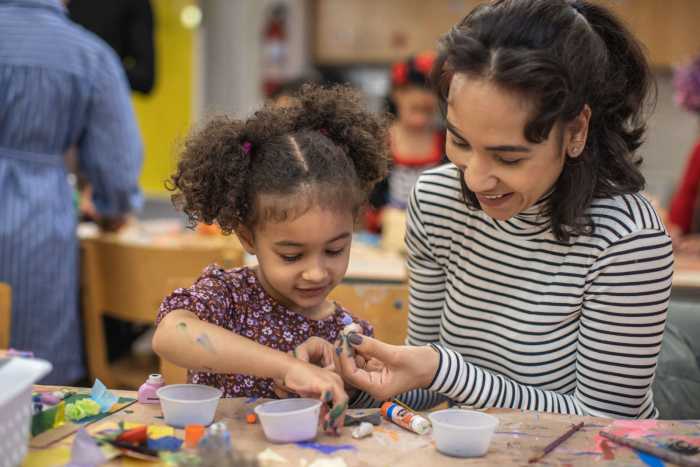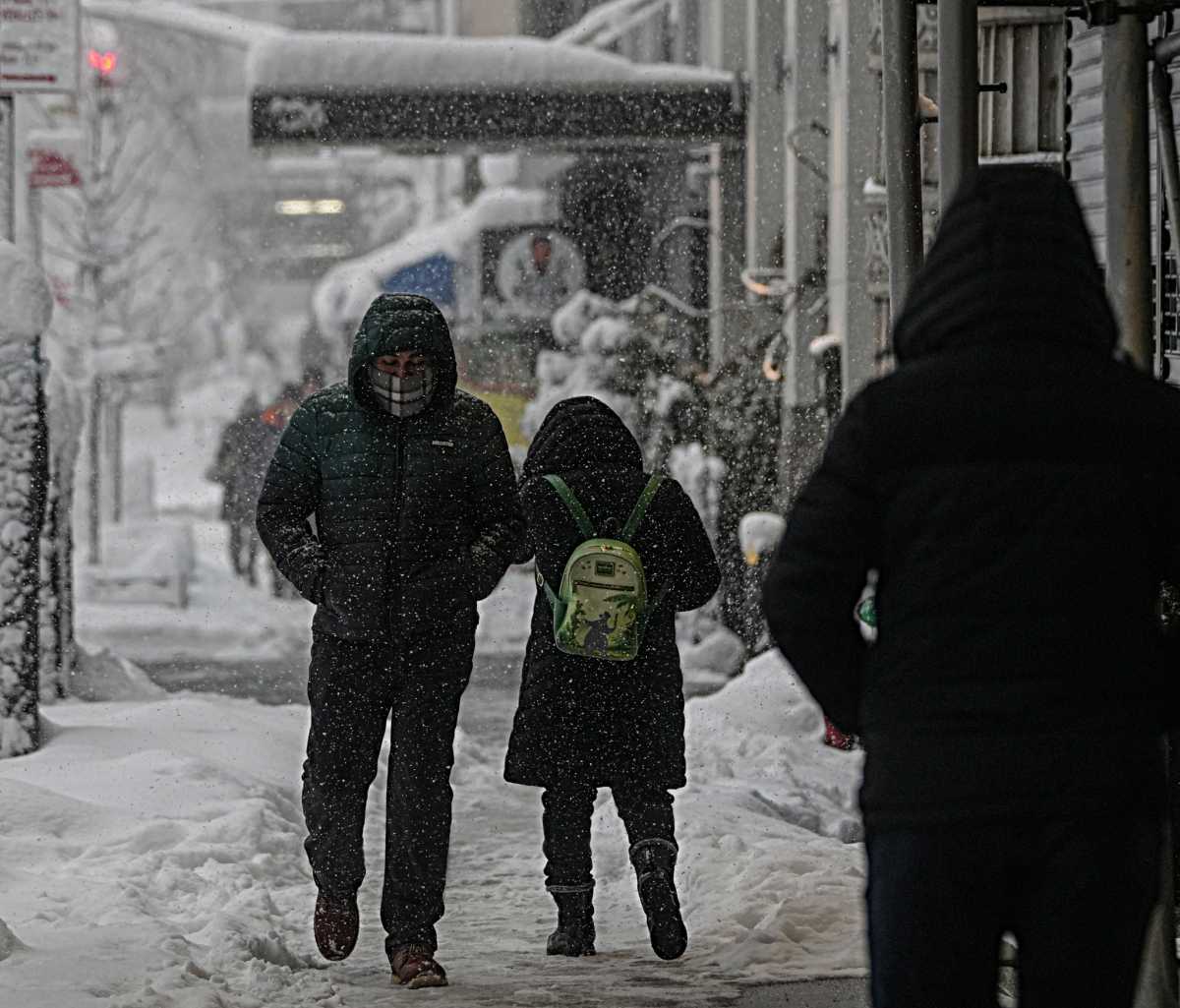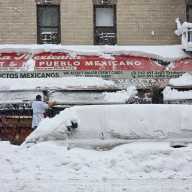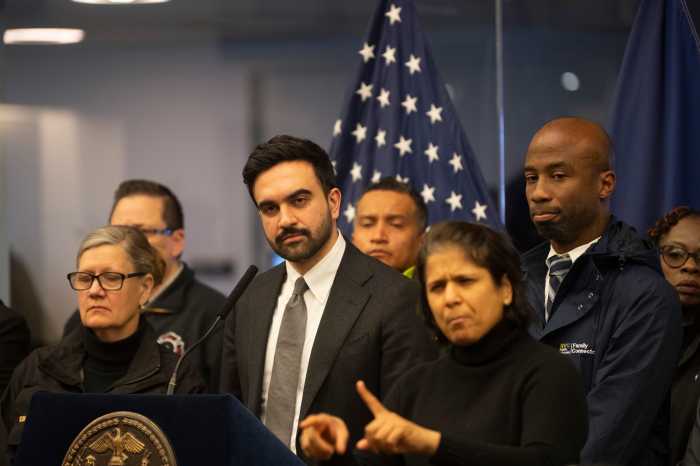Drums, gospel, and radical poetry nourished the ears; food from Voilá Afrique satisfied the belly; and Black pride uplifted the soul, as people gathered to celebrate Juneteenth in Van Cortlandt Park.
Hosted by the Van Cortlandt Park Alliance and the Bronx Arts Ensemble, the Juneteenth Jubilee on Thursday was the fifth annual for the two organizations and the country at large, commemorating the day when slaves in the U.S. were freed in 1865. While many already recognized the monumental day of liberation over the years, it wasn’t until President Biden signed a law marking June 19 as a federal holiday that celebrations became more widespread.
“Today we celebrate when we finally got to be free and when we were considered more than a percentage of a human,” said Judith Insell, executive director of the Bronx Arts Ensemble. “We have been humans all along and all of a sudden, we are being perceived in a very different way.”
Insell’s comment referenced the Three-Fifths compromise, when in 1787 the Constitutional Convention determined slaves only counted as three-fifths of a person for taxation purposes and representation in the House of Representatives.
Hosting the event adjacent to the Van Cortlandt House Museum and nearby an enslaved African burial ground was intentional and made the event all the more significant.
“Our first celebration was in [2021] in the wake of the George Floyd and things were very rough and at the time. NYC Parks was trying to do the right thing and rename different places in the park,” said Stephanie Ehrlich, executive director of the Van Cortlandt Park Alliance.
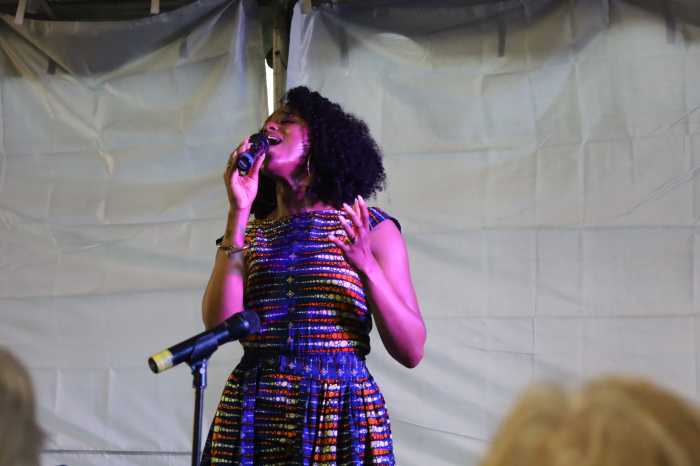
Olof Stevense Van Cortlandt, who was born in the Netherlands, was the first of the Van Cortlandt family to settle in New York—then known as New Amsterdam—in the early 1600s and was later followed by his relatives. The park pond, which was owned by Jacobus Van Cortlandt in the early 1700s and called Van Cortlandt Lake, was renamed in 2021 to Hester and Piero’s Mill Pond. Piero was an enslaved African miller who produced grain and lumber, Hester was his wife.
Jacobus’ son Frederick built the Van Cortlandt house in 1748, and it was completed a year later. Slaves worked the land and were buried on the grounds without headstones. In 2021, that too was renamed as the Enslaved African and Kingsbridge Burial Grounds.
A partnership with the Design Trust for Public Space will continue to transform Van Cortlandt Park with input from the community in what they are calling a “reimagining” with hopes of executing a plan by next year.
Bronx Borough President Vanessa Gibson, Assemblyman Jeffrey Dinowitz and Councilman Eric Dinowitz were on hand for the festivities. And while they were joyful for the celebration, they also spoke at length about the hidden history of Blacks in America and emphasized that in order to look toward a bright future, we must first uncover the truth of our dark past.
Assemblyman Dinowitz said he was unaware of Juneteenth until he was elected to office, despite being an American history major in college.
“In order for us to move ahead as a country, in order for us to learn about mistakes that were made in the past, we have to know about our past,” he said to the crowd. “We have to know the full story and not just the sanitized versions that many of us were taught in schools.”
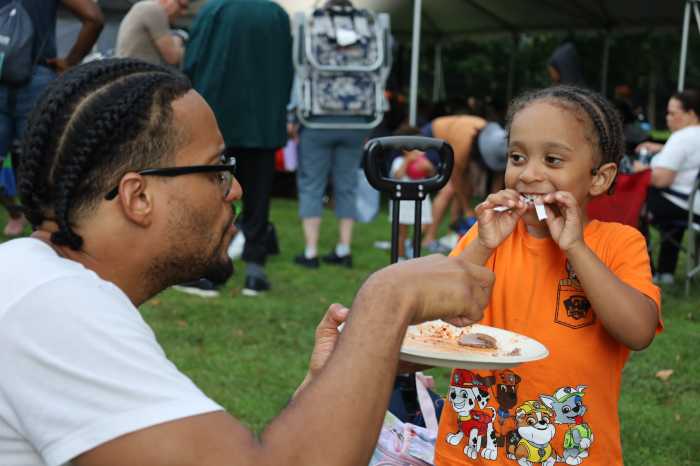
Centuries later, Black Americans continue to face deep-rooted disparities. According to 2023 data from the Centers for Disease Control and Prevention, Black women are three times more likely to die from pregnancy-related causes than White women. In 2020, the CDC also reported that Black men had the lowest life expectancy of any demographic group in the U.S.
Struggles such as these served as inspiration for Roya Marsh. The poetry and creative writing teacher performed a series of poems, including “Blk Joy.” An excerpt reads:
“Antiracism means that you are willing to die for my kind of Black/that built a country they keep trying to legislate me out of/what good is writing poems about unborn when I have nieces and nephews and students/you know they are trying to shut down one prison to build four.”
Poet David Mills also read from his book about slavery in the Bronx titled, “How the Earth Answers.”
“I was oblivious to the Earth’s ebony algebra caked in my cleats,” he read on stage.
The event closed with a libations performance by students of the Harlem School of the Arts and led by their teacher, Elder Baba Don Eaton Babatunde.
“They’ve already begun,” he said as the sky brightened with lightning and thunder roared through the atmosphere.
“This offering of light and water to our ancestors, remembering them, honoring them, from all the pain and injustice they receive, keep them close to our hearts so that we may find a better life,” Babatunde read as he symbolically poured a pitcher of water to the ground.
In a perfectly timed moment of profound togetherness, the rain came down as people from the crowd shouted the names of their ancestors to the sounds of the drums.
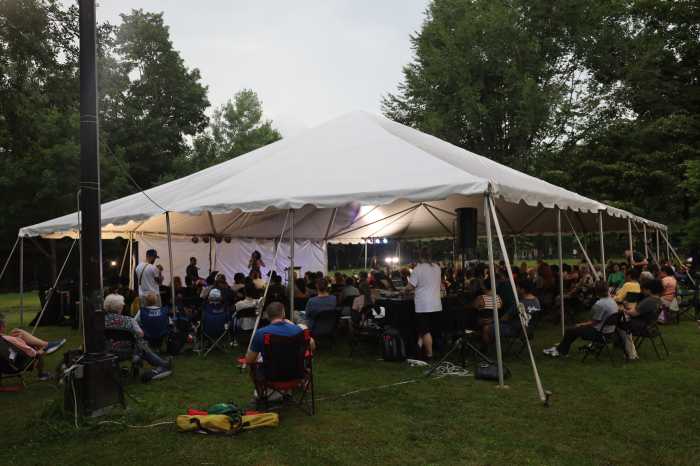
Reach ET Rodriguez at etrodriguez317@gmail.com. For more coverage, follow us on Twitter, Facebook and Instagram @bronxtimes

